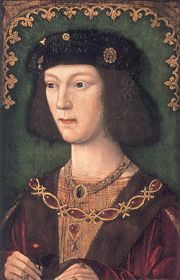
In Tudor times people ate in a common dish or in trenchers (=a kind of plate/bowl made of wheat that could be eaten as well together with the meal) and they used their fingers to eat, so it was important to have clean hands.
At this time, there was an important “figure” who was called “Miss Manners”. Miss Manners was a woman who taught people how to be polite during dinners, parties and public events. People were advised by Miss Manners to wash their hands out in the open where everyone could see them, and to keep their hands were clean during the meal, which was very difficult to do! It was considered very “fashionable” to visit Miss Manners and learn about table manners.
In the Middle Ages and Renaissance, manuals for manners gave a list of things people shouldn’t do during a meal, such as:
(Before going):
§ have a complete bath with clean water or put on perfume to avoid bad smells;
§ wash your mouth with salty water or gargle mint herbal tea to avoid bad breath;
§ polish and clean your finger nails properly;
§ dress clean clothes;
(During the dinner)
§ don't put your fingers in your ears/nose;
§ don't put your hands on your head (avoid contact with lice and dandruff, in public);
§ don't blow your nose with your hands;
§ don’t clean your nose with your clothes or with the table cloth;
§ (men) refrain from "scratching";
§ don’t release winds during the meals;
§ don’t “fuss around” the dishes/trenchers looking for the best piece of meat;
§ don’t put bones back on the dishes/trenchers, throw them on the floor.
OBS: We say The Tudors (with the -s) to talk about the family. We say The Tudor (without the -s) as an adjective to give quality to “things” related to the period of the Tudors (e.g. The Tudor Rose, Tudor architecture, etc...)








